Pan’s Labyrinth: a Fascist Fairytale
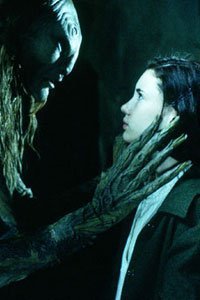
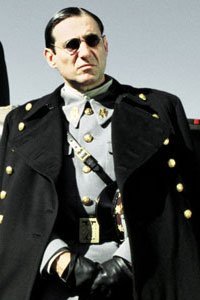
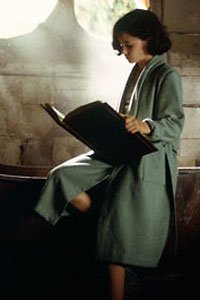
I’m fairly certain that Guillermo del Toro was trying to piss me off with his beautifully filmed, marvelously acted, Academy Award nominated masterpiece Pan’s Labyrinth. How else could you explain his use of nearly every fairytale device in what is so disturbingly not a fantasy film?
Set in World War II Spain, the film depicts the conflict between government soldiers and rebels, with a well-read youngster caught in the middle. Ofelia is this girl, and it is her imagination that provides the fantastic elements. The film, while featuring actually fairies, isn’t a fairy tale — it’s a comparison of reality vs. fantasy, where reality is ultimately victorious.
After a week, I can appreciate Mr. del Toro’s intentions, and find much to enjoy in El Laberinto del Fauno, but his rejection of fantasy as self-delusion still stings. My wife reminded me that the original Wizard of Oz constructed a similar, completely contained, unverifiable “fantasy” world, so I’m prepared to place them both firmly in the anti-fantasy genre. After all, poor Dorothy was right back in depression-era Kansas when all was said and done, without even a pair of ruby slippers to pawn.
If only Ofelia had been so lucky.
Written by Jeff in January of 2007. Last edited September 2014.
 Blue Moon Rising
Blue Moon Rising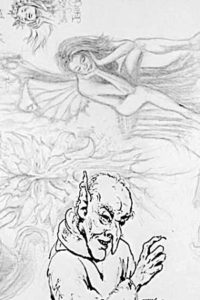
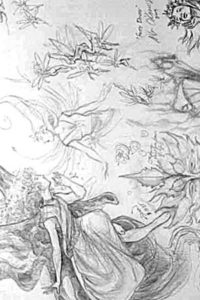
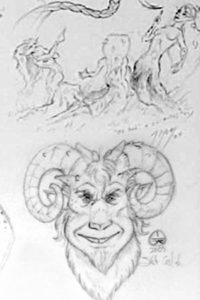
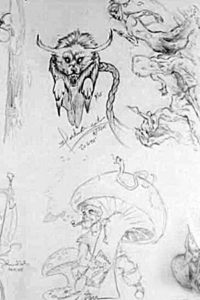

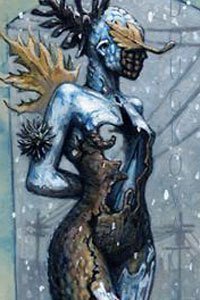
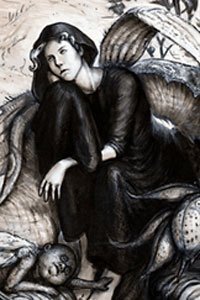
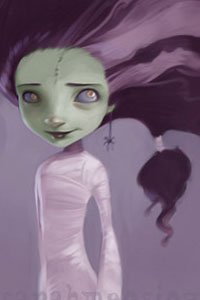
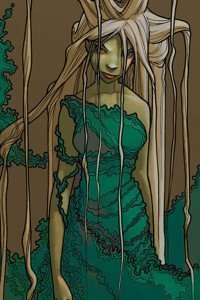
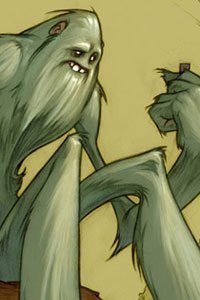
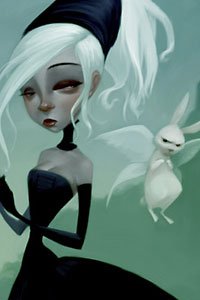
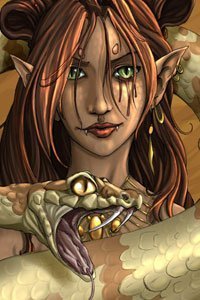
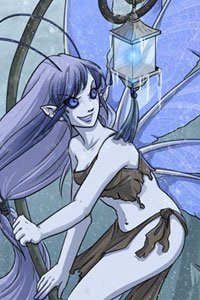



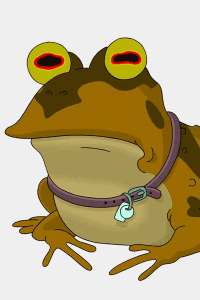
Sounds like your interpretation of the film is just that; your own interpretation — of what is otherwise NOT the director’s own conclusion.
what defines a fantasy anyway?
“Fantasy” is that which is not real, but the usual artifice of a fantasy movie is that the unreal IS real, not just imagination. I agree it’s a minor distiction, but — for me — it’s important. It’s still a great film, just jarringly not what I expected.
Well, while I was watching the film I was constantly confused. Is the girl imagining things or is Pan real? Her trials seem real, because of the artifacts she collects and how she travels through walls and such. The point where she eluded the step-dad was pretty neat. I thought she was scot-free. At the end of the movie, I felt really upset with the step-dad and also a bit upset with the otherworldly characters for their deception. In the end, however, she lived out her days happily. As for the movie, I think it was a fantasy film, but the worlds are apart in the movie; the world of fantasy and the world of men. Only a special few can enter Pan’s Labyrinth…
Interesting consideration on Pan’s. I have a lot of respect for Guillermo del Toro, I think he is a huge visionary in cinema, and it shows with Pan’s.
As for the fantasy aspect that you’re discussing, I don’t think del Toro rejects fantasy. Have you seen his other films? Even Hellboy or Blade 2 are very much fantasy, you just have to consider the story that is Pan’s. This is all her imagination (or is it?) and yet it’s a very grungy world she’s living in. He’s styles it that way so that it’s not the glorified Hollywood “fantasy” that you think of but something very unique to Ofelia’s mind. He wrote the entire movie, too.
I’m afraid that I have to disagree because it does make us question whether or not Ofelia’s fantasies were real and it shows us a great interpretation of innocence triumphing over evil and Ofelia symbolises that perfectly! It’s different from most fantasy films because it isn’t so sentimental as we think them to be, when the original fairy tales by Hans Christian Anderson and the Brothers Grimm enterpretted their stories in a very similar way. It’s more relatable because it shows war through a child’s point of view and what a fascist war does to those who are vivctimised by it, which is what we all need to know for a fact and take action on it since the U.S.A. is taken over by a fascist who wants to take over the rest of the world through war. Also reailty does NOT triumph because Ofelia risks her life through her fantasies to save her brother.
In short, this film was more like the original fairy tales that I’ve read than any other fantasy film there is, making it a true fairy tale.
I’ll agree that Pan’s hearkened back to the original, deadlier fairy tales, but I still can’t shake the feeling that Ofelia’s afterlife was no less illusory than is offered by any other mythology.
For me, the film left it’s promise of fantasy unfulfilled, but I can appreciate Mr. del Toro’s take on the futility of war.
I really must disagree with your assessment of Pan’s Labyrinth. The ending is not reality vs. fantasy, with reality winning. Ofelia achieves her destiny in a way that is integral (although not necessarily predictable) to the fantasy plotline. If it is jarring, it is only because the Ofelia’s “real world” is so violent that we are lulled into believing–despite the evidence of our eyes–that the fantasy world is somehow less so.
This is one of the most moving and beautiful films I’ve ever seen, and one of the few movies I’ve seen in which horrific violence is actually important to plot and character development, rather than being played up for mere shock value.